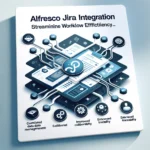TestNG vs. Mockito: A Comprehensive Comparison of Testing Frameworks
In the world of software testing, developers often rely on robust testing frameworks to ensure the quality and reliability of their code. Two essential tools used for testing Java applications are TestNG and Mockito. While TestNG is a powerful testing framework designed for unit and integration testing, Mockito is a popular mocking framework used to create and manage mock objects for testing purposes. In this blog post, we will compare TestNG and Mockito, exploring their unique features and use cases, to help you understand how they complement each other in achieving comprehensive test coverage for your Java projects.
TestNG: The Advanced Java Testing Framework
TestNG, inspired by JUnit, was developed to address the limitations of JUnit and provide additional testing functionalities for Java applications. It is widely used for unit testing, integration testing, and end-to-end testing.
Advantages of TestNG
- Test Configuration: TestNG allows developers to define test suites, test cases, and test methods using XML configuration files. This makes it easier to manage complex test scenarios and execute specific tests based on different parameters and conditions.
- Parallel Execution: TestNG natively supports parallel test execution, allowing tests to run concurrently on multiple threads, which significantly reduces overall test execution time for large test suites.
- Dependency Management: TestNG enables developers to set dependencies between test methods, ensuring that tests run in the desired order. This helps manage the setup and teardown of test environments efficiently.
- Flexible Annotations and Grouping: TestNG provides a wide range of annotations that allow developers to define test behaviors, control execution flow, and handle pre- and post-test actions. Grouping tests based on specific criteria enhances organization and readability of test cases.
https://synapsefabric.com/2023/07/26/testng-vs-robot-framework-a-comprehensive-comparison-of-testing-frameworks/
Mockito: The Versatile Mocking Framework
Mockito is a widely used mocking framework that simplifies the creation and management of mock objects during testing. It helps isolate the code under test by replacing dependencies with mock objects, allowing developers to focus on testing specific behaviors.
Advantages of Mockito
- Mocking Dependencies: Mockito provides a simple and intuitive API to mock objects, enabling developers to isolate the code under test from its dependencies. This allows for more focused and effective unit testing.
- Behavior Verification: Mockito allows developers to verify the behavior of the code under test by verifying method calls on mock objects, ensuring that they are invoked as expected during the test.
- Stubbing Methods: Mockito allows developers to stub methods on mock objects, specifying return values or exceptions to simulate different scenarios during testing.
- Annotation Support: Mockito supports annotations like
@Mock,@InjectMocks, and@Captor, simplifying the process of creating mock objects and injecting them into the code under test.
Choosing the Right Framework
The choice between TestNG and Mockito depends on the testing needs of your Java projects.
Choose TestNG if
- You need a comprehensive testing framework that supports various types of tests, including unit, integration, and end-to-end testing.
- You require advanced test configuration, parallel execution, and dependency management for your test suites.
- You need flexible annotations and grouping for better organization and control of your test cases.
Choose Mockito if
- You want a powerful mocking framework to isolate the code under test from its dependencies during unit testing.
- You need to simulate different scenarios and behaviors of dependencies by stubbing method calls on mock objects.
- You prefer a simplified and intuitive API to create and manage mock objects for your tests.
TestNG and Mockito are powerful testing frameworks that serve different purposes in the Java testing landscape. TestNG is a versatile testing framework for unit and integration testing, offering advanced test configuration and parallel execution capabilities. Mockito, on the other hand, excels in creating and managing mock objects, enabling focused and effective unit testing by isolating code dependencies.
In practice, TestNG and Mockito are often used together to achieve comprehensive test coverage. TestNG handles the overall test management and execution, while Mockito facilitates the isolation of code under test by mocking its dependencies. By leveraging the strengths of both frameworks, developers can create robust and reliable test suites that lead to higher code quality and a more successful software product.






